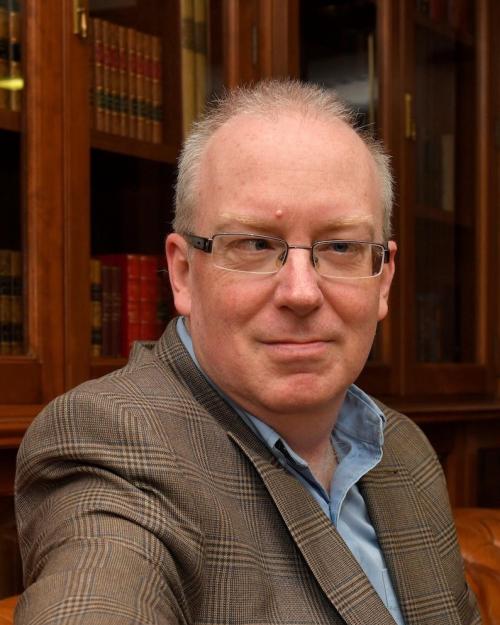Matter can arrange itself in ingenious ways; in addition to the solid, liquid and gas phases that are familiar in classical physics, electronic phases of matter – some of them exotic and some useful – are made possible by quantum mechanics.
In the Fall 2022 Hans Bethe Lecture, physicist Charles Kane will explain how mysterious features of quantum mechanics can be harnessed for future technologies. Kane’s talk, "The Emergence of Topological Quantum Matter” is Wednesday, Oct. 19 at 7:30 p.m. in Schwartz Auditorium, Rockefeller Hall with a livestream provided by CornellCast.
“Professor Charlie Kane’s research provides us with transformative new ideas on how topological matter can emerge with the help of symmetry,” said Chao-Ming Jian, assistant professor of physics in the College of Arts and Sciences (A&S) and faculty host for the lecture. “These ideas have led to the prediction of new classes of topological quantum materials, such as insulators that conduct electricity only on their surface.”
In the last century, the semiconductor – ubiquitous in today’s information age – was developed thanks to researchers who gained a thorough understanding of the simplest quantum electronic phase, the electrical insulator, Kane said. In the present century, physicists are discovering new “topological” electronic phases that allow the seemingly impossible to occur: indivisible objects such as an electron or a bit of quantum information can be split in two. What new technologies will be enabled by further insight into the nature of quantum matter?
“Our understanding of topological phases builds on deep ideas in mathematics,” Kane said. “I will try to convey that they are as beautiful as they are fundamental.”
Kane is the Christopher H. Browne Distinguished Professor of Physics at the University of Pennsylvania. He received a bachelor’s degree in physics from the University of Chicago in 1985 and a Ph.D. in physics from MIT in 1989. After a post doc at IBM T.J. Watson Research Center he joined the faculty of the University of Pennsylvania in 1991.
Kane is a theoretical condensed matter physicist who is known for his work characterizing quantum electronic states of matter, including quantum Hall states, Luttinger Liquids, carbon nanotubes and topological insulators. Recently his research has focused on the theory of topological insulators and their generalizations. Kane is a Fellow of the American Physical Society and a member of the National Academy of Sciences. His work on topological insulators has been recognized by several awards, including the Oliver Buckley Prize (2012), the P.A.M. Dirac Medal (2012), the Benjamin Franklin Medal (2015), the Breakthrough Prize (2019), the BBVA Frontiers of Knowledge Award (2019) and the Fudan-Zhongzhi Science Award (2020).
As part of the Hans Bethe Lecture series, Kane will give a physics colloquium, “Symmetry, Topology and Electronic Phases of Matter,” Monday, Oct. 17 at 4 p.m. in Schwarz Auditorium, Rockefeller Hall, and an Applied and Engineering Physics/Laboratory of Atomic and Solid State Physics seminar, “Topology of the Fermi Sea,” Tuesday, Oct. 18 at 4 p.m. in 700 Clark Hall.
The Hans Bethe Lecture Series, established by the Department of Physics and the College of Arts and Sciences, honors Bethe, Cornell professor of physics from 1936 until his death in 2005. Bethe won the 1967 Nobel Prize in physics for his description of the nuclear processes that power the sun.




